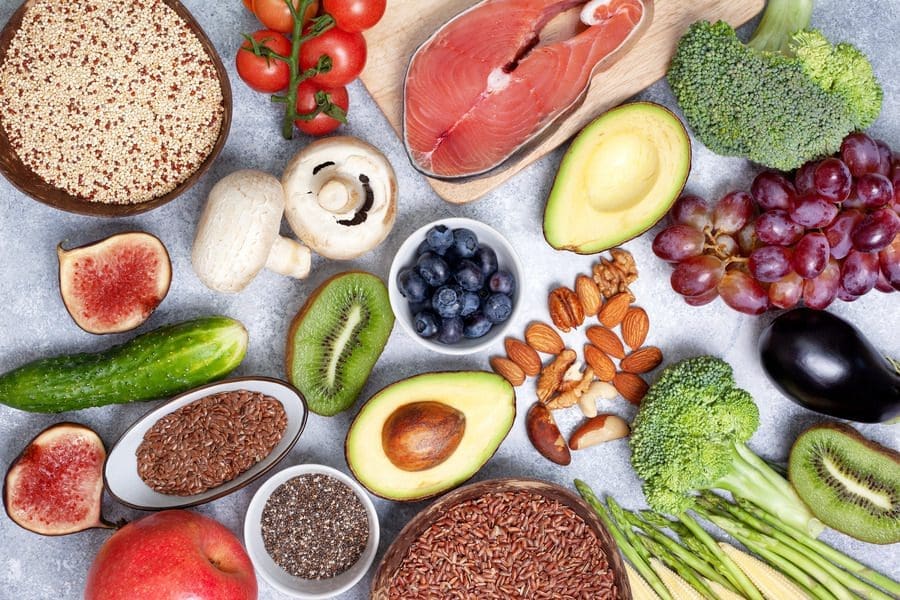A pescatarian eats predominantly vegetarian foods but also incorporates fish and other seafood into their diet. The pescatarian diet has gained popularity for being healthy and environmentally friendly, but there are some downsides. Here, we’ll delve into the pescatarian diet to understand its unique advantages and disadvantages.
Pescatarian Diet Benefits
Nutrient-Rich
A balanced pescatarian diet can be very nutrient-dense: Protein, vitamins (B-complex, vitamin D), and minerals (iodine, zinc, and iron) are all found in fish. Including a range of fruits, vegetables, whole grains, nuts, and seeds in the diet promotes health by providing critical nutrients and antioxidants.
Heart Health
The pescatarian diet’s potential to improve heart health is one of its most noteworthy benefits. Omega-3 fatty acids, particularly EPA and DHA, are abundant in fish and other seafood and have been associated with a lower risk of heart disease, lowered blood pressure, and improved cholesterol levels.
Brain Health
Omega-3 fatty acids have also been linked to enhanced mental acuity. Fish consumption has been associated with a decreased risk of neurological diseases like Alzheimer’s.
Weight Management
Switching to a pescatarian diet may help people who want to lose weight. According to studies, those who eat a pescatarian diet have lower body mass indexes (BMIs) and fewer chances of obesity than people who eat an omnivorous diet.
Environmental Effects
Compared to diets that rely largely on red meat and poultry, the pescatarian diet can have a lesser environmental impact. Pescatarians contribute to a more sustainable food system by consuming less meat and putting more emphasis on fish, which has a reduced carbon footprint.
Ethical Considerations
People who follow a pescatarian diet can address their ethical objections to land-based animal production, lessening their impact on the effects of factory farming on animal welfare.
Variability and Acceptability
Pescatarian food is highly tasty and diverse. Pescatarians can experiment with a variety of recipes from various culinary traditions.
Cons of a Pescatarian Diet
Mercury
One concern about the pescatarian diet is mercury and other contaminants. While fish are a fantastic source of nutrients, water pollution has caused some species to have higher amounts of mercury and other pollutants. To minimize dangers, people should exercise caution while choosing fish, especially pregnant women and children.
Overfishing and Sustainability
The rise in popularity of the pescatarian diet may result in more demand for specific fish species, which could contribute to overfishing and put marine ecosystems in danger. In order to address this problem, choosing fish from sustainable sources and supporting ethical fishing methods is essential.
Possibility of Nutritional Imbalance
A well-planned pescatarian diet can be quite nutrient-dense; however, pescatarians must make sure they acquire appropriate levels of nutrients such as calcium, iron, and vitamin B12 through fortified foods or supplements mostly found in animal products.
Cost
Since high-quality seafood can be pricey, some people may struggle to afford a pescatarian diet. Depending on your location, access to sustainable seafood that is both fresh and plentiful may be restricted.
Social Challenges
Pescatarians may find it difficult to participate in social activities if their food selections are limited.
Fish Fraud Mislabeling
The sale of less desirable fish species (which are cheaper to attain) has occurred in the seafood sector. To avoid being victims of fish fraud, pescatarians must be attentive and only buy seafood from trusted vendors.






